|
A few years ago I started listening to my age in seven-inch singles on my birthday. It helps that I don’t mind embodying a Hard Times piece, not that committing to a bit has ever been my problem. The hurdle for my last birthday was that my stereo was still in the shop, so I indefinitely postponed this yearly ritual for a better day. As horrible, horrible luck would have it, I don’t have anywhere to be this Sunday, so why not self-quarantine myself with at least thirty-nine seven-inch singles? (Fake edit: I made it through listening to and writing about forty-five 45s. Well, some of them play at 33 1/3. I've included Bandcamp / YouTube links whenever possible.)
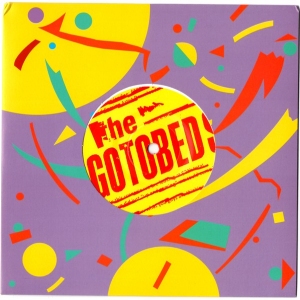
My other Gotobeds singles were compiled on the heartily recommended Fucking in the Future +5, issued by Comedy Minus One in 2017, but fortunately, this joyous, energetic cover of Redd Kross’s first EP is a great way to start off my day. Fun fact: my kids love The Gotobeds. They especially love the song “New York’s Alright (If You Like Sex and Phones),” and almost every time I cover up the ribald parts of the opening lines—“New York’s alright if you can get your dick sucked / Collegiate display of post-classic head-fuck”—with a well timed cough because I’m not ready to have that talk with them yet. Fortunately, there's no harm in them using a Gotobeds can koozie to hold seltzer cans.
Protomartyr and R. Ring / A Half of Seven, Hardly Art, 2015
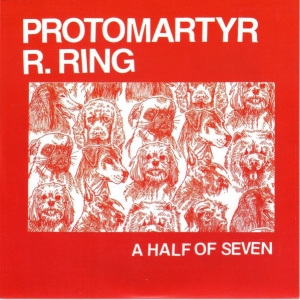
Two Fridays ago I was planning on driving out to Kalamazoo to see Protomartyr perform with Kelley Deal in their lineup, and I was particularly excited to hear them perform the Deal-bolstered “Blues Festival” from this single. It features the tremendously relatable lyric “My brains they run on bad thoughts” and is a highlight of my current running mix, not that I can use the treadmill at the gym for the immediate future. Alas, the show was canceled the morning of, and like countless other shows, I can only hope the country recovers at some point so it can be safely rescheduled. In the meantime, Protomartyr’s new single “Processed by the Boys” has an all-time great video and their next album Ultimate Success Today is due in May. I would be remiss if I didn’t mention how good R. Ring’s “Loud Underneath” is on the flip of this single; I picked up the band’s Ignite the Rest album in Chicago last year and was glad to hear it again.
Warpaint / “NWO (Redux)” b/w “I’ll Start Believing,” Rough Trade, 2016
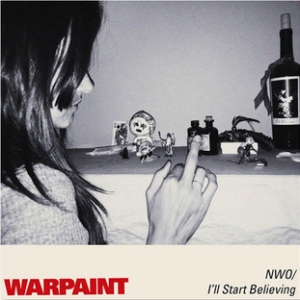
I’ve kept an eye on Warpaint since they released their first EP, but I’ve grown considerably fonder of their melodically charged post-punk over their last few records, particularly 2016’s Heads Up. Early on they had a “sum is less than the whole of its parts” problem, with songs like “Elephant” often getting tripped up by awkward transitions or shoehorned hooks. I credit the addition of drummer Stella Mozgawa with ironing out their songwriting process; their songs excel when built up from the foundation of Mozgawa and bassist Jenny Lee Lindberg (who often carries the melodic load, Peter Hook–style). I don’t know if these two songs, which I enjoy as much as anything else in the band’s catalog, would fit smoothly on Heads Up, but they certainly deserved a better fate than an import-only single.
Arab Strap / “Hey! Fever” b/w “Girls of Summer,” Chemikal Underground, 1997

Arab Strap is stirring again, having recently performed as a duo for a Philophobia retrospective (the album was reissued on vinyl by Chemikal Underground in December), and I would love for another full-blown reunion, given how superb their live sets from 2017 sounded. In the meantime, their discography is exceptionally deep, as proven by this pre-Philophobia single. “Hey! Fever” is a Balearic-tinged pop song with guest appearances from Stuart Murdoch and Chris Geddes of Belle and Sebastian and a lyrical callback to their Arab Strap’s signature song, “The First Big Weekend.” It’s nice, although thoroughly out of sync with a frigid March morning stuck indoors. This studio version of “Girls of Summer” is a faint shadow of the live take from Mad for Sadness (which would easily make my top ten Arab Strap songs), but it’s interesting to hear the starting point for that post-rock rave-up.
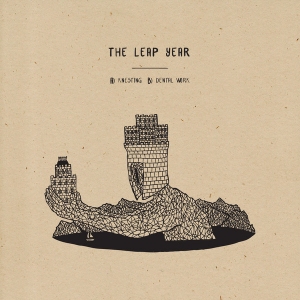
I recently picked up Ten Years (Thank You), Hobbedehoy Records’ 2LP anniversary compilation. I bought it for the exclusive song from The Leap Year, the unusually delicate, acoustic “No Badlands Now,” but the collection holds together quite well, a testament to the varied tastes of the Australian label: post-rock, drone, electronic, shoegaze, and even a touch of emo. The Leap Year only has two full-lengths, this single, and that compilation track, but every song is excellent. “Knesting” lurches between slowcore meditation and bristling catharsis in a way that recalls some post-Slint ’90s indie groups (or perhaps a more bipolar rendition of Jawbox’s “Whitney Walks”), and “Dental Work” is sinewy Midwestern rock from the opposite side of the globe.

Windy & Carl have a new full-length, Allegiance and Conviction, set for release at the end of this week, and I’m disappointed that I won’t be able to drive out to Stormy Records and buy it from them directly. I bought this particular Windy & Carl single at Stormy during a visit to Michigan a few years ago, and talking at length with Windy was a highlight of the trip. Each time I’ve been there since moving, I’ve had a nice conversation with Windy and/or Carl, and I’ve also accumulated more of the group’s consistently compelling catalog (along with some other excellent records like Kali Malone's The Sacrificial Code). This single ranks near the top, offering two somnambulant dream-pop songs and a hand-painted cover with a vibrant, welcoming palette. I’ll hold off on Allegiance and Conviction until I can pick it up in person, whenever that may be.
Kathryn Joseph / “Weight” b/w “Cold,” Rock Action, 2019
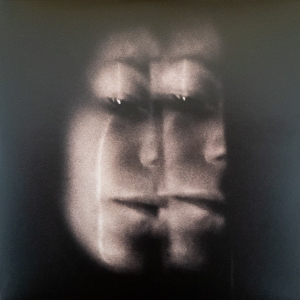
My most disappointing show cancellation of 2019 was The Twilight Sad with Kathryn Joseph, a tantalizing import bill that axed its Boston date after James Graham lost his voice. I’ve seen The Twilight Sad a half-dozen times and I’m sure I’ll see them again, but I haven’t seen the bewitching Kathryn Joseph, whose 2018 album From When I Wake the Want Is possesses a gravitational force. She tours far more sparingly than The Twilight Sad, and whether she’ll make it back to North America at all is a legitimate concern. In addition to her own records, Out Lines, her collaboration with Graham and Marcus MacKay, released Conflats in 2017, and I’m especially partial to its closing track, “These Three Desire Lines.” Their voices work very well together and the arrangements allow plenty of space for the duet to breathe.
Urusei Yatsura / Yon Kyuku Iri EP, Beggars Banquet, 1999

I dove hard into the back catalog of Scottish noise-pop merchants Urusei Yatsura a few years ago after finding a copy of their swan song, 2000’s Everybody Loves Urusei Yatsura. Their mix of Pavement’s smarts, Sonic Youth’s tunings, and Dinosaur Jr.’s fuzz is right up my alley, and while “Slain by Elf” has been a personal favorite since picking up the single at Rhino Records in high school, I was surprised to learn about so many import-only singles that are just as good as anything that made their records. This EP is the shiniest jewel glistening at the back of their deep-cut cave, offering four superlative tracks. “Kaytronika” and the aptly titled “Still Exploding” are noise-pop gems fronted by Graham Kemp, “Nobody Knows We’re Stars” is Kemp’s self-effacing yet still-kinda-affecting acoustic ballad, and “Mother of the MBK” is a sprawling, dynamic contribution from Fergus Lawrie. I looked in countless American stores for this single before finally biting the bullet and importing it (along with a few other Urusei Yatsura singles) from the UK. I still need to find the single for "Eastern Youth" so I can have the b-side The Hearts You Break, though.
Foals / “Red Socks Pugie” b/w “Gold Gold Gold,” Transgressive, 2008
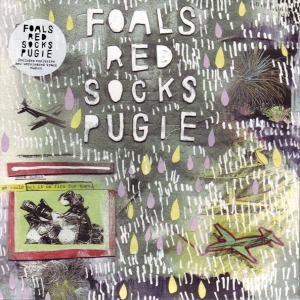
I’m not begrudging their success, but Foals being a very popular band, especially in Europe, is somewhat mystifying to me. The math-rock–infused, melodic post-punk of Antidotes and Total Life Forever (albums I still very much enjoy) possesses greater crossover appeal than, say, Battles, but I hadn’t predicted that they’d be a big Glastonbury act. And yet, that’s what they’ve become, largely trading the latticework guitar parts of “Balllons” and the slow burn of “Spanish Sahara” for chunky riffs and (cough) obvious lyrics on next last few records. Last year they issued the two-part Everything Not Saved Will Be Lost, and my interest was reignited by much of part one (and a comparatively small portion of part two). For a single, “Exits” is an endearingly odd duck (the video still has almost five million views on YouTube), six minutes of off-kilter Tears for Fears homage, but that’s the sort of decision I appreciate seeing. (The meathead rock of Part Two’s “Black Bull,” not as much.) A few tracks even echoed the emotional resonance of “Red Socks Pugie,” which broke through the occasionally clinical Antidotes with some post-emo yearning amid its surging tempos.
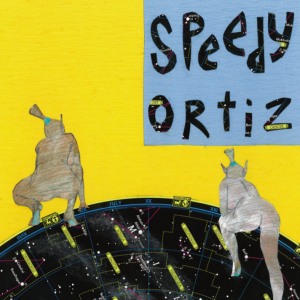
The world deserves a Speedy Ortiz singles/rarities compilation. I don’t know how hard it is to find this particular single, which supercharges two songs from Sadie Dupuis’s earliest Speedy Ortiz recordings with full-band renditions, but there’s plenty more beyond it. Early digital single “Taylor Swift” b/w “Swim Fan” still graces their set lists (and also marks the point where the band sounded like a band), Adult Swim single “Bigger Party” has one of the best lyrical uses of “shithead” in recorded history, the tracks from Foil Deer’s supplemental EP Foiled Again deserve a physical release (particularly “Death Note,” which has a nasty riff), not everyone got the special edition of Twerp Verse with the bonus single, and several other worthy tracks are floating around (like their Liz Phair cover). Hell, put "Cutco" on there because it would be really nice to have "Cutco" on there. Boom, press a thousand copies. A new Sad13 album is due soon, which means Speedy Ortiz will be quiet on new material for a while, the perfect time to prep a singles compilation.
Shiner / “Semper Fi” b/w “A Sailor’s Fate,” DeSoto, 1999
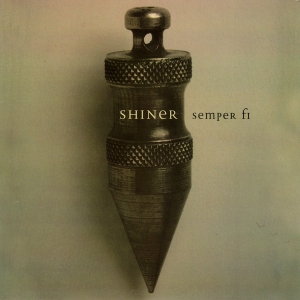
Shiner’s reunion album, Schadenfreude, is due at the end of May, and you can hear “Life as a Mannequin” now. I’m trying not to overdo it on the advanced single, because I know I will listen to the album as a whole a great deal, but the general vibe is Starless with the knowledge gained from five albums with The Life and Times (who remain an ongoing project that you should absolutely keep up with), and I'm pretty happy with that combination. I’m just as excited about the chance to see Shiner again, provided that circumstances improve enough by the end of May (stares blankly into space). I am, however, faced with one of the oddest concert conflicts in my lifetime. The closest currently schedule Shiner date is in Grand Rapids on May 24th, which happens to be the same night as Hindsight 2020 at Matt Talbott’s bar Loose Cobra in Tolono, IL, where Castor, Menthol, and Honcho Overload will be performing. If you’d told me twenty years ago that I’d have to choose between seeing Shiner or seeing Castor, I would be exceptionally confused about the future state of the world.
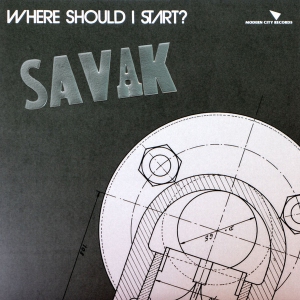
There’s no slowing down Savak, who will soon release their fourth LP (the delightfully titled Rotting Teeth in the Horse's Mouth) since forming in 2015, bolstered by a four-song EP and two singles. “Where Should I Start?” is a propulsive, Krautrock-infused rocker fronted by Sohrab Habibion (formerly of Edsel and Obits, bands with similarly relentless work ethics and consistently rewarding catalogs), while Michael Jaworski sings the brighter “Expensive Things,” which thrives with compositional detail. Savak recently shared a playlist of music from around the globe that was inspiring them lately, and I think that appetite for new and different sounds helps keep the balance of their own songwriting in the sweet spot between fresh and familiar. While this single ranks among my favorite of their releases, the closing tracks from 2017’s Cut-Ups (“I Left America”) and 2018’s Beg Your Pardon (“They Are Not Like Us”) are poignant, politically charged highlights of their ever-expanding repertoire.
Julianna Barwick / “Pacing” b/w “Call,” Suicide Squeeze, 2013

This Julianna Barwick single is among the best seven-inches released in the last decade and a requisite selection every time I play a large stack of singles. (I previously wrote about it here.) As much as I cherish her full-lengths, especially 2011’s The Magic Place and 2013’s Nepenthe, there’s no better introduction to her serenely calming arrangements of vocal loops and gentle piano lines than the a-side “Pacing,” nor a better instrumental respite to be found than the b-side “Call.” Many of her tracks do more in terms of compositional techniques, melodic inspiration, and instrumental variety, but as a distillation of what makes her so crucial to my listening in the last decade, I direct you to this single. She’s been relatively quiet since 2016’s Will, issuing a four-song collaborative EP with Rafael Anton Irisarri (Thesis 10) in 2017 and the five-song cassette Circumstance Synthesis last year, so here’s hoping that another full-length is in the works.
Sunny Day Real Estate / “How It Feels to Be Something On” b/w “Bucket of Chicken,” Sub Pop, 1998

In theory, I don’t need this pre-album single from Sunny Day Real Estate’s original glorious return in 1998, given that the a-side is the title track to How It Feels to Be Something On, and the ingloriously named b-side (written for the soundtrack to The Crow, from which it was rejected, unlike “8,” which made the cut for the Batman Forever soundtrack) has since been included on the vinyl reissue of LP2. But I’m a sucker for this kind of hand-made sleeve, its textured paper reminiscent of countless other care-in-packaging classics from that era (June of 44’s first three releases, the Rachel’s records, Postmarked Stamps singles, etc.). They were bigger than those bands, but still felt connected to the need for a personal touch. If you haven't heard the William Goldsmith interview on The Trap Set podcast, I highly recommend it, although it is very intense and will likely pull the rug out from underneath your prior conception of SDRE's internal dynamics.
L’Altra / Ouletta, Aesthetics, 2002
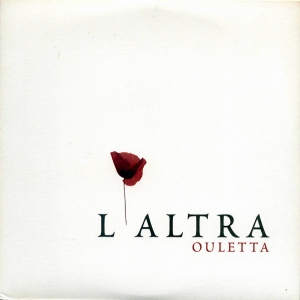
From what I can tell, L’Altra (French for “the other”) has been largely forgotten since their modest heyday in the early ’00s, having last released a comeback-of-sorts album with 2010’s Telepathic. Over their original run of a self-titled 1999 EP, 2000’s Music of a Sinking Occasion, 2002’s In the Afternoon, and 2005’s Different Days, Lindsay Anderson and Joseph Costa’s voices intertwined over an evolving backdrop of Low-esque slowcore, infusing their sound with post-rock, chamber pop, folk, and electronic elements as the additional members of their lineup shifted. (Different Days featured both members of Telefon Tel Aviv after Anderson appeared on three tracks from the group’s 2004 Map of What Is Effortless). Both Anderson and Costa released solo records in 2007, If and Costa Music’s Lighter Subjects, and while I enjoyed those releases, it’s clear in hindsight that they work best in tandem. Ouletta’s quiet strength encourages me to revisit those records in the near future. It's one song split into two parts.
Ocampo, Ocampo, and Watt / “Apparatus” b/w “Better Than a Dirtnap,” ORG Music, 2019
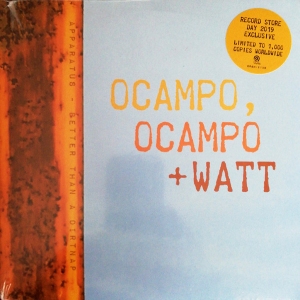
Few tears will be shed over the postponement of Record Store Day this year, as for most people who do not work for the reissues department of a major label, the “holiday” has become a punch-line for the music industry’s worst excesses. But every now and then there’s a legitimate gem released on Record Store Day (or, deep sigh, Record Store Day Black Friday), and last year’s one-off collaboration between Devin Ocampo (of Smart Went Crazy, Faraquet, Medications, Beauty Pill, and The Effects), Renata Ocampo, and the esteemed Mike Watt is one such exception. Anyone familiar with Devin Ocampo’s songs knows that man does not fuck around, and “Apparatus” aligns with his history of excellence, despite the parts being recorded on opposite sides of the country. Watt’s “Better Than a Dirtnap” is a typically idiosyncratic sing-along, a strange song that nevertheless sounds like something you’d known for years. Worth tracking down for fans of any involved parties.
Mogwai / “Mexican Grand Prix” b/w “Slight Domestic,” Rock Action, 2011
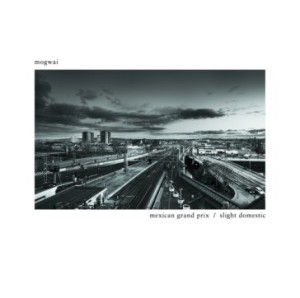
Mogwai hasn’t been quite as productive in the last few years, with their last release being the soundtrack to the sci-fi action film Kin in 2018. (The soundtrack is mostly fine, if less than essential, and I will someday make it through more than fifteen minutes of the film, just not today.) It’s not like the band hasn’t provided me with a surplus of material to enjoy—their vinyl, box sets and all, occupy an entire Kallax cube—but I’ve been spoiled by how regularly they issue both top-line and supplemental material. Their 2011 LP Hardcore Will Never Die, But You Will (which I wrote about at length here) may possess an unquestionably superb album title, but the song selection is somewhat baffling, as the measured, meditative “Slight Domestic” from the b-side of this single and the bruising “Hasenheide” from the “Rano Pano” single each improve upon several tracks from the album.
Pile / “Special Snowflakes” b/w “Mama’s Lipstick,” Exploding in Sound, 2014

Both songs from this single were included on Pile’s accurately titled Odds and Ends compilation in 2018, which collected a bunch of essential tracks from singles and compilations (other highlights include the “Cut off my dick!” screams in “Big Web,” the roaring forward momentum of “Pigeon Song,” and the open fragility of “Keep the Last Light On”). That does not preclude me from pulling out the original single, however, as both of these songs remain among my favorites from the group, and it’s nice to be reminded of just how great of a scope, in terms of both compositional breadth and emotional depth, Pile could fit onto one seven-inch. “Special Snowflakes” was the showstopper, a moody, dynamic rocker that evoked the almighty Rodan in how deftly it handled the switch from a languid stumble to wide-eyed electricity. But “Mama’s Lipstick” was the revelation here, grasping for ineffable memories from youth as present situations ever-threaten to disintegrate.
Constantines / “Our Age” b/w “Fuckin’ Up,” Arts & Crafts, 2008
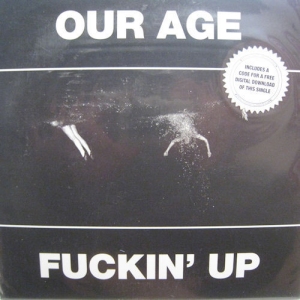
The Guelph-based Constantines are one of those bands that feel very much like they should have been bigger, given how immediate most of their catalog sounds in its Fugazi-meets-Springsteen aesthetic. Perhaps they simply came out too soon, given how other bands mining that general territory found more lasting success in the years following the last Constantines album, 2008’s Kensington Heights. While 2003’s Shine a Light stands as their best album, the bridge between the raw energy of their self-titled debut and the comparatively refined songs from Tournament of Hearts, there’s no single song of theirs I revisit more frequently than “Our Age,” the highlight of Kensington Heights. It’s a classic rock song in the way that many trio-era Silkworm songs are classic rock songs, imparting the accumulated wisdom from their younger, dumber years without sounding like they’re talking down to the kids. There’s a wonderful acoustic rendition on the companion EP Too Slow for Love that’s also worth hearing.
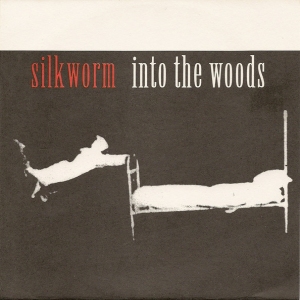
Silkworm / “Into the Woods” b/w “Incanduce California,” Rockamundo, 1993
I wrote extensively about Comedy Minus One’s exceedingly welcome reissue of Silkworm’s In the West last year, and hearing “Into the Woods” from that album on a dusty seven-inch is a good reminder of how tremendous of a job Steve Albini, Tim Midyett, and Andy Cohen did with the remix/remaster of the source material. (There was even a skip before the second verse, to add injury to insult.) I heartily recommend picking up that vinyl reissue (“Incanduce California” is one of the digital bonus tracks) and listening to the episode of Kreative Kontrol with the aforementioned trio of personnel for an enlightening look back at the genesis of the album. Tim Midyett's current band, Mint Mile, just released a double album called Ambertron on Comedy Minus One, but hopefully you preordered that record months ago, had it arrive last week and are enjoying it now.
Tarentel / Two Sides of Myself, Static Caravan, 2000

The post-rock group Tarentel evolved rapidly throughout the course of their existence, going through phases of ambient drones, rhythmic clatter, and psychedelic noise without losing track of a consistent continuum. Having listened to the spacious, haunting drones of 2001’s The Order of Things earlier this week, it’s hard not to see this two-song single as a bridge between the more typical post-rock structures of 1999’s From Bone to Satellite (reissued with bonus material in 2016) and the comparatively skeletal approaches of The Order of Things. It’s worth noting that these songs were recorded in the same time frame (Summer 1999 and February 2000) as my favorite Tarentel material, the “Looking for Things” b/w “Searching for Things” twelve-inch. All four songs, alone with “The Waltz” from their Travels in Constants release, were compiled on Ephemera | Singles 99–2000, which is my ideal soundtrack for reading.
Helium / “Hole in the Ground” b/w “Lucy,” Pop Narcotic, 1993
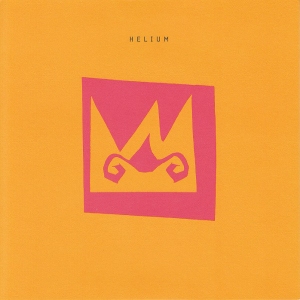
I shouldn’t be surprised that Helium was so good by their second single; after all, Mary Timony had already been in Autoclave and knew how to write arresting songs. But on “Hole in the Ground” and especially the b-side “Lucy” (which I first heard on the disc of bonus material for formative compilation What’s Up Matador), Timony’s noise-pop instincts impress mightily. I could hear an argument that “Lucy” doesn’t need to extend to six-and-a-half minutes, but until No Guitars, Helium tended to stretch their songs out as they saw fit, and “Lucy” deserves to revel in twisting guitar feedback as much as "Baby's Going Underground" needed to zone out in rhythmic bliss. Both sides of this single were included on the 2017 compilation Ends With And, which, like the simultaneous vinyl reissues of The Dirt of Luck and Magic City / No Guitars, are no-doubt pick-ups for anyone interested in rock music .
Telegraph Melts / “Heilgeschichte und Weltgeschichte” b/w “Goodbye No. 20,” Self-released, 1997
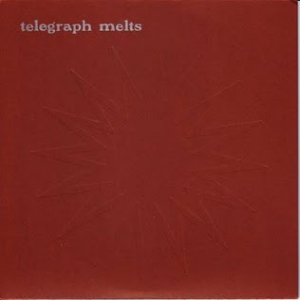
Telegraph Melts was a briefly lived cello-and-guitar duo from two familiar names in the DC music scene. Cellist Amy Dominguez was the driving force for Garland of Hours (along with Brendan Canty), and has done guest spots with countless bands likely in your collection (Fugazi, Faraquet, Mary Timony, Jets to Brazil, Beauty Pill, Ted Leo, etc.). Guitarist Bob Massey was also a member of Tsunami for a spell. Together as Telegraph Melts, they released a full-length, Ilium (which opens with the excellent "Septembrist"), on Absolutely Kosher in 1998 (guest percussion from Devin Ocampo!), and this single. A small, but memorable collection of material that straddled the line between experimental, sometimes abrasive compositions (the slashing guitar noise of “Heilgeschichte…”) and beautiful, affecting post-classical arrangements (“Goodbye No. 20”) reminiscent of Rachel’s. I likely wouldn’t have heard of Telegraph Melts without the early MP3-promoting site Epitonic, but I’m glad that I did.
Ganger / “Geocities” b/w “Alessandra and Her Western Fan,” Wurlitzer Jukebox, 1998
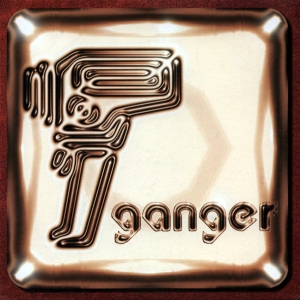
The most obvious reference for Ganger is Mogwai, given that both were prominent post-rock bands from Scotland in the mid-’90s (and I saw them on the same mind-blowing, ear-splitting bill at the Metro in Chicago in September 1999), but on this particular single, a more specific aesthetic touchstone would be the Chicago-based band Dianogah, who explored similar two-bass instrumentals. Technically, Ganger’s lineup included guitarist Craig B. as well, but the basses run the show here, and you could slot either of these songs onto a Dianogah record without raising many eyebrows. A few disparate points: first, the title “Geocities” has largely returned to a positive mental image separate from “gross early web site design”; second, “Alessandra…” was originally a song from Craig B. and Natasha Noramly’s band Fukuyama, whose two singles languish at the bottom of my Discogs wantlist; third, I cannot stress how much better Hammock Style is than anything else in Ganger’s generally likable catalog. If you enjoy post-rock and haven’t heard Hammock Style (start with the incredible "Capo [South of Caspian]"), rectify that error.
Dirty Three & Scenic / Split Single, Narwhal, 1998
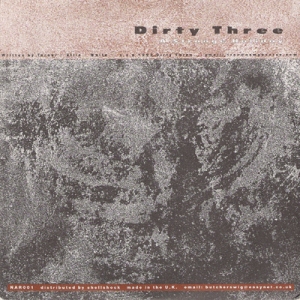
If you’re looking to author some indelible mental pictures while stuck at home, you can do a lot worse for inspiration than the instrumental compositions of Dirty Three and Scenic. I recently listened to Dirty Three’s classic run of albums (1996’s Horse Stories, 1998’s Ocean Songs, and 2000’s Whatever You Love, You Are) and it’s impossible to overstate their greatness. “A Strange Holiday” is on par with those records, a largely piano-dominated lament that gives way to Warren Ellis’s multi-tracked violin in its final minutes. (I recently watched the Nick Cave documentary 20,000 Days on Earth, and Ellis comes across as a supremely endearing human being, especially the scene in which he’s directly a children’s choir.) I know Scenic more for guitarist Bruce Licher’s Independent Project Records / Independent Project Press, which upped the ante on record packaging in the ’80s and ’90s, but I own several of Scenic’s impeccably packaged albums on CD somewhere, and their songs are evocative of many things, but most specifically open Western landscapes. “When the Time Comes” is more brisk than ponderous, but it’s a nice complement to Dirty Three’s track.
Beastie Boys / “Sure Shot” b/w “Mullet Head” Capitol, 1994
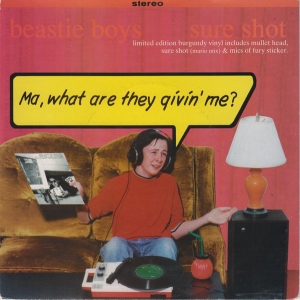
The Beastie Boys were one of the groups in the ’90s that I generally enjoyed but were inescapable enough that I didn’t feel any need to actively put them on—I’ve undoubtedly seen the video for “Sure Shot” dozens of times—but after Adam Yauch passed away in 2012, I made a more conscious effort to work through their catalog. I appreciate their work in the following order: Paul’s Boutique, the singles from their ’90s albums, their general cultural presence, the entirety of their ’90s albums, and then maybe Licensed to Ill and their later records. Last year I read Book, which is a supremely entertaining read for even fair-weather fans like myself, and worth checking out of your local library the next time it's open. I am glad that I picked up this single at Mystery Train at some point; “Sure Shot” is a classic and I enjoy doing the dog-saying-“I love you” intro, “Mullet Head” is a better-than-you’d expect rocker with a neat snaking guitar part midway through, and the remix, while unnecessary, isn’t unlistenable.
Bloc Party / “Two More Years” b/w “Hero,” Wichita, 2005
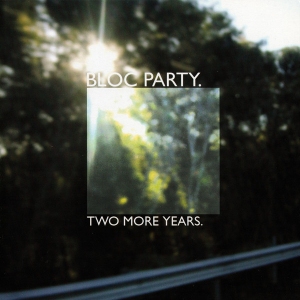
I pulled out Bloc Party’s Silent Alarm earlier this week, and as I do every time I listen to that album, I started thinking about how quickly and thoroughly they squandered its excitement. 2007’s A Weekend in the City isn’t a complete whiff (I like “Hunting for Witches”), but it’s a step in the wrong direction, one which placed too much sonic detritus in the way of the clear, well rehearsed instrumental interplay that drew me into Silent Alarm. (And that was before they started 2008’s Intimacy with a drum break overwhelmingly reminiscent of Chemikal Brothers’ “Block Rockin’ Beats.”) The biggest problem with Bloc Party’s second record is that they could have made it sooner. They had a number of excellent non-album tracks that were left to import singles, as exhibited here by the catchy “Two More Years,” and if they’d simply collected those for Silent Alarm’s follow-up instead of frittering them away, things might’ve gone better in the long run. ("Hero" is a b-side, through and through.) It was particularly noticeable when “Little Thoughts,” another non-album single, popped up in the middle of my American pressing of Silent Alarm, and I immediately thought “This song wasn’t on the album” followed by “Why wasn’t this song on the album?”

Merge wisely pressed these two Adult Swim Singles Series tracks to vinyl in 2017, just like they’d done for Wye Oak’s outrageously good covers of The Kinks’ “Strangers” and Danzig’s “Mother” from the AV Club’s Undercover series in 2011. “Spiral” originally came out in 2012, when I thought its danceable rhythms and rolling marimba melody were interesting stylistic divergences instead of signs of things to come. I was wrong! “Wave Is Not the Water” came out in 2017 and is much more in line with the following year’s excellent The Louder I Call, The Faster It Runs. Wye Oak has issued a number of digital singles leading up to their five-piece-band tour Join (which was sadly interrupted), and I wouldn’t be surprised if an album including those songs arrives this fall, hopefully with a tour stop in Michigan. It would be wild to see them perform with Andy Stack out front playing bass.
The Fall / Bingo-Master’s Break Out!, Superior Viaduct, 1978/2016
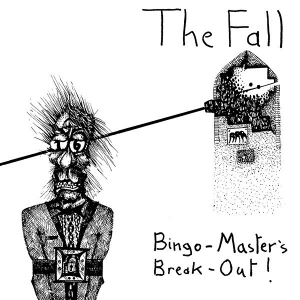
I was slowly working my way up to it, but after Mark E. Smith passed away in 2018, I committed myself to a thorough appreciation of The Fall. I listened to virtually everything the band released—albums, Peel Sessions, singles, rarities—up until around 2000, at which point I very understandably needed to put the project on hold. If there’s a core truth about The Fall that I can impart, it’s that all of those things are important to understanding the band. I could say “1980 through 1986, that’s the best era, Perverted by Language is my favorite album, a singles collection like Palace of Swords Reversed is the best starting point,” but dabbling doesn’t paint the whole picture. I needed to understand that Smith used the albums for different purposes than the singles, that sometimes the definitive version of a song would appear on a Peel Session before or after the release of the album, because you needed to hear all of the versions (exhibit one is “New Puritan”), that knowing the names on the sleeve was critical, even if only one name truly mattered. (That name? Steve Hanley. Kidding, maybe.) It’s even evidenced here on their first single (the only seven-inch I own from them). The two antsy post-punk songs on the a-side are the appetizer, and the rambling, ranting “Repetition” on the flip is the main course.
Hot Snakes / “I Shall Be Free” b/w “A Place in the Sun,” P U, 2020
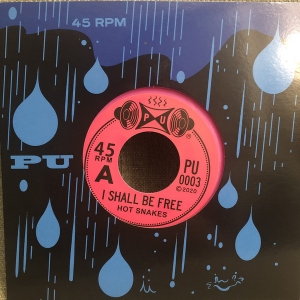
It pays to have friends who will buy an extra copy of a limited-run, available-at-shows-only single and mail it to you, so without my friend Scott, I would not be listening to the new Hot Snakes single right now. These songs will appear on their next album, presumably due in the fall, so if you’re upset about missing out, you won’t languish in misery forever. As per Hot Snakes standards, both songs totally rip / smoke / shred / kill / eviscerate. Whatever trending verb you’ve got, this single does it, the Hot Snakes guarantee. “I Shall Be Free” opens with their telltale melodica, but soon breaks out into a pounding, mid-tempo series of body blows. “A Place in the Sun” is even better, an all-out rocker with a riff near the end of the song that recalls some of Drive Like Jehu’s crazier moments. Let me preorder the next record now and Rick Froberg can blow my twenty bucks on art supplies to keep himself busy.
Fucked Up / “Blink” b/w “The Way We Did,” Fucked Up Records, 2014

I’ve played a lot of records this week, but given that my wife is working from home and my kids are attempting to keep up with school, the vast majority of albums qualify as unobtrusive. I’m glad to rotate through my stacks of ambient, drone, modern classical, post-rock, and Kosmiche records, but one day after dinner I put on Fucked Up’s The Chemistry of Common Life, and it felt alive in a way that much of this last week hasn’t. It also reminded me of the times that I’ve seen Fucked Up, and how sweaty those shows are in the best possible way. The Fucked Up live experience may only exist in fantasy right now, but fortunately they have released a metric fuckload of records, and I own a good, if by no means complete, collection of them. A personal favorite is this tour single, purchased at a concert in San Francisco. Both songs rank among my favorites for the band, and I’ve found myself putting it on quite a lot over the years for a small dose of a band that’s often served in overwhelming portions. Apparently it's hard to come by because a box of them fell out of their van on the way to Los Angeles, the classic punk rock mix-up.
The Twilight Sad / “The Room” b/w “The Neighbours Can’t Breathe (Acoustic),” FatCat, 2010
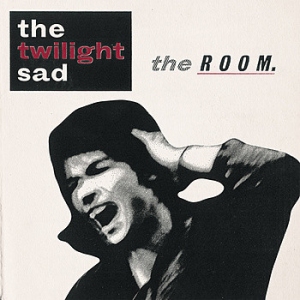
The Twilight Sad has issued a tall stack of seven-inches that would make worthy choices for today, most recently the “Rats” b/w “Public Housing” supplement to their 2019 album It Won/t Be Like This All the Time (fingers crossed). But it’s hard to pass up a single with one of their best songs on the a-side and an acoustic version of another one of their best songs on the b-side, both from their underrated 2009 album Forget the Night Ahead. (I could make a convincing argument that each of their albums since their rightly heralded 2007 debut, Fourteen Autumns and Fifteen Winters, is underrated in some capacity.) “The Room” appropriates the insistent, minimal pound of Nine Inch Nails’ “Hurt” for a comparatively warm, if typically inscrutable tale. I’m also partial to the live rendition with the Royal Scottish National Orchestra. Regardless of the arrangement, it’s all about James Graham’s voice. “The Neighbours Can’t Breathe” strips the jet-engine roar from the album version to reveal Andy MacFarlane’s delicate arpeggios and loses none of its mystery.
Cloakroom / “Lossed Over” b/w “Dream Warden,” Run for Cover, 2014
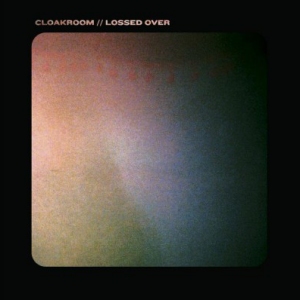
Cloakroom was scheduled to open for Caspian in Detroit this spring, but like many others, that show was postponed indefinitely. They’ve toured in the last year, but haven’t released anything since 2017’s Time Well, which was my introduction to their blend of Hum’s guitar tones, Pinebender’s crawling tempos, and Songs: Ohia’s wounded emotions. The a-side of this single appears on their 2015 album Further Out (its closing track, “Deep Sea Station,” is one of those songs I’ll play a half-dozen times in a row), but its b-side is exclusive to the single, and features Hum’s Matt Talbott, who produced Further Out, on vocals. I know Hum is still threatening to release a new record one of these years (“It’s almost ready” I’ve heard, quite a lot), but “Dream Warden” is a few ripping Tim Lash leads shy of being a fantastic Hum song.
St. Vincent / “Krokodil” b/w “Grot,” 4AD, 2012
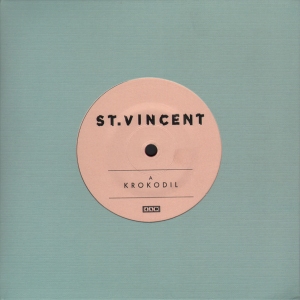
Another rare instance of an essential record being released on Record Store Day, this St. Vincent single might be my favorite thing that she’s released. St. Vincent played a set of Big Black covers in 2011, and it’s hard not to hear “Krokodil” as embodying that abrasive spirit. That isn’t to say that it’s pale mimicry or uninspired tribute—“Krokodil” certainly has the manicured arrangements of Strange Mercy in its DNA as well—but it’s an exceptionally interesting direction for her to take given how fast her star was growing at that point. “Grot” is even better, as Annie Clark caustically delivers power-structure critiques over a slow-motion collision of enchanting vocal loops and super-heavy, warped riffs. On one level it’s disappointing that she didn’t pursue this direction further or longer, on another level perhaps it’s the exact right amount to pursue this direction.
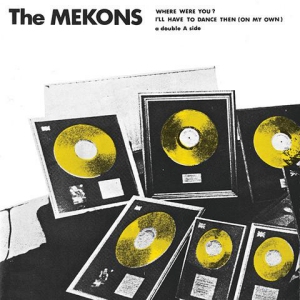
As someone who counts 1985’s Fear and Whiskey among his favorite albums, it’s slightly embarrassing that it took me this long to properly explore The Mekons’ earliest recordings when they were in the same post-punk class as Gang of Four (literally: both bands formed at the University of Leeds). Some of this delay came down to availability, since they’re a band I mostly listen to on vinyl, and while I had been able to find copies of their key records from the ’80s and early ’90s with relative ease, I simply didn’t run into 1979’s The Quality of Mercy Is Not Strnen, 1980’s self-titled album, or their early singles in American record stores. Some of this delay came down to reputation, as their early days are often discussed as being an art school lark that never took itself very seriously, especially in contrast to Gang of Four. Fortunately, Superior Viaduct has reissued their first two singles and their debut record, and my immediate takeaway from spending adequate time with this era of the band is that it’s far, far better than reported. They possessed a freewheeling, egalitarian artistic spirit, but they wrote post-punk songs that were just as good as their compatriots’. Here, “Where Were You?” evokes a more lighthearted track from Wire’s Chairs Missing and “I’ll Have to Dance Then” nicks some of Gang of Four’s funkiness.
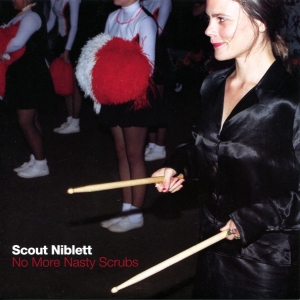
Last year I read Erin Osmon’s Jason Molina: Riding with the Ghost, an enlightening and eventually very harrowing look into the life and death of the Songs: Ohia and Magnolia Electric Co. captain. The book discusses how Molina gave Scout Niblett’s demo to Secretly Canadian, which led to her signing with the label, and how they would share a split single. I had seen her name before, but didn’t know anything about her, so when I checked out Wikipedia, I learned that 1. we are birthday buddies 2. she released a single with covers of Janet Jackson’s “Nasty” and TLC’s “No More Scrubs.” I made a mental note to find that single, and as if fate had deemed me worthy, I found a copy at Dearborn Music a few weeks later. Her rendition of “Nasty” is appropriately sassy and drum-heavy, but it’s her sober, bluesy take on “No More Scrubs” that rewards that initial connection with Jason Molina. Granted, covering an R&B song is far more of a Will Oldham move, but Niblett does both sides of this conceit justice. Now I need to make a mental note to find more of her records.
Wire / “A Question of Degree” b/w “Former Airline,” Harvest, 1979
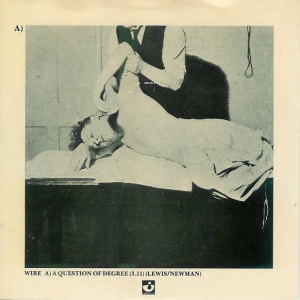
I own two copies of the most essential Wire non-album single, given that I’d bought this original a few years before all of their early singles (most of which I did not previously own) were collected in the Nine Sevens box set. But it’s hard to complain about having another copy of “A Question of Degree,” one of Wire’s best tracks, and the platonic ideal of guitar-driven post-punk. The flip is, in a particular sense, an accurate prediction of the upcoming 154, as “Former Airline” buries what could have been a straightforward post-punk track in layers of abrasive production noise (horns, strange sounds, guitar slashes—who knows). As with 154, it works because of what accompanies it. I can listen to all of 154 because for every unsettling “Indirect Enquiries,” there’s a perfectly crafted “Map Ref. 41°N 93°W” to help it go down.
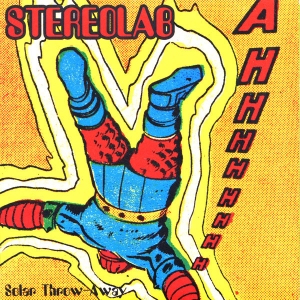
Seeing Stereolab on their fall tour last year was one of my biggest priorities and toughest logistical challenges; I had to make an educated guess as to where I would be living at the time, and thankfully, I correctly surmised that I would be closest to their Detroit date. It was worth all of the stress to finally see them perform. Laetitia Sadier has a completely enchanting stage presence, Tim Gane seemed thoroughly pleased to hyper-strum on the side of the stage, and substitute bassist Xavier Muñoz Guimera handled those exceptionally dexterous bass line and the dearly departed Mary Hansen’s background vocals with jaw-dropping aplomb. They played the songs I wanted to hear the most—“Crest” and “Jenny Ondioline”—but showed that any song from their vast catalog could be captivating. Over the next few months I worked through their series of expanded reissues, seven in total, and at no point did I wish that there was less to go around. Next up, to the best of my knowledge, is Switched On Volume Four, another collection of non-album material, which I presume will include this single. I genuinely couldn’t remember what these songs sounded like before putting it on, but the a-side is a particular treat with its mid-song shift. Will we get new Stereolab music? Who knows, but I’m ready and waiting if they do.
Errors / “Magna Encarta” b/w “Ganymede,” Rock Action, 2010
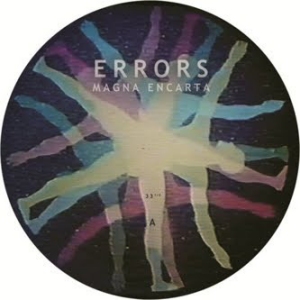
It’s a bummer when you have to come to your own conclusion that a band is done making music—such is (presumably) the case with my beloved Scottish post-electro band Errors. Their last record was 2015’s Lease of Life, for which they did comparatively little touring (no live footage of this material is on YouTube), and it now seems safe to say that the inventive, vocal-heavy synth pop of that album marked their final evolution. I’m glad that I was able to see them at Great Scott in Allston in 2012, and especially appreciative that they performed “Magna Encarta,” my favorite song from the group. It marked the farewell of original guitarist Greg Paterson, who left the group before 2012's superlative Have Some Faith in Magicto pursue dentistry, and over its six minutes there’s a still-impressive array of terrain covered, from poignant slide guitar leads, to subterranean video game level neuroses, to wordless yet emotive vocals. It easily ranks among my favorite songs from the last decade. The b-side, “Ganymede,” is comparatively slight, but tonight I appreciated its womb-like enclosure.
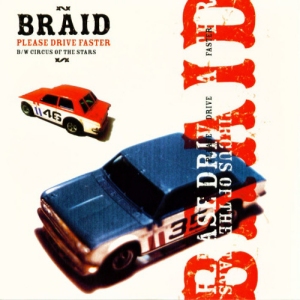
It’s somehow been only five weeks since most of my Twitter feed was griping about Vulture’s Top 100 Emo Songs instead of worrying about their potential doom, but time flies when you’re vastly overrating American Football. I kid—mostly. As much as I like American Football (albums one and three), it remains a brain-breaking thought that a band who was mostly an afterthought in Champaign, where I moved to for college in 1999, would be the most heralded, influential act in emo twenty years later. If you’re familiar with Upright Citizens Brigade bits, it’s like asking the robot, “How come?” I just can’t wrap my head around it. If I were a betting man and had to pick one Champaign band to take that crown, I would have said “Oh, it’ll be Braid” in a split-second. Their last show was on my first night in college and it was packed. People cared about their string of posthumous releases. Other bands aped their sound. Post-Braid act Hey Mercedes was on every bill in Illinois for a solid year. Am I saying that Braid deserves to be the most heralded, most influential emo band? No, not really. I’m happy to pick and choose from most of their catalog prior to Frame and Canvas and this single, which was later included on Movie Music Vol.1. Their legacy isn’t half-bad: they enjoyed several reunions and put out a solid full-length with 2014’s No Coast. But if you presented two anonymized paths and asked me which one would be American Football’s and which one would be Braid’s, I would have been dead wrong. Don’t trust me on anything.
Lower Dens / “I Get Nervous” b/w “Johnssong,” Gnomonsong, 2010
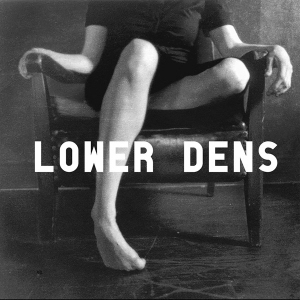
Jana Hunter had been making music for years before forming Lower Dens, but it remains impressive that the group formed in 2010 and released Twin Hand Movement the same year, given that it’s such an assured, thought-out debut. The element that stands out to me about both “I Get Nervous” and the non-album b-side is how ’50s pop is foundational in the sound—the reverb-heavy guitar, the slow-dance tempos—and yet neither song sounds like an explicit throwback. After enjoying Twin Hand Movement, I was floored by “Brains,” the lead single for their sophomore album, 2012’s Nootropics, and how it felt like the future in a way that few songs do. (I put it on a few months ago and it still does sound like the future.) Given the penchant for dramatic stylistic shifts (and the departure of the other original members of the band), I shouldn’t be surprised by Lower Dens’ switch to mining of ’80s synth-rock on their last two records, but I haven’t found as much about those records that engages me as on their first two.
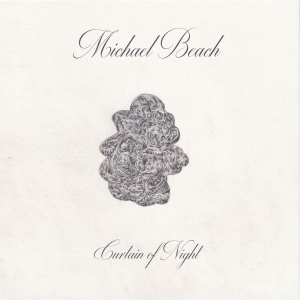
Australian native and periodic Oakland resident Michael Beach released one of the best records of 2017 in Gravity/Repulsion, which recalls both American classic rock staples and New Zealand rock imports over its eight songs and twenty-six minutes. There are short records and there are concise records, and Gravity/Repulsion is the latter, but even within its tidy runtime, there’s a sense of sprawl and space to “A Vision of Modern Love” and “Freddie Dreams of Mars” that most artists would waste hours trying to capture. This single introduces his new backing band, The Artists, with one original song, the affable and immediate “Curtain of Night,” which slides on like a well worn pair of jeans that somehow hasn’t developed an embarrassing hole in the crotch, and one cover, a coiled, tense rendition of Peter Jefferies’ “Electricity.”

I never miss an opportunity to harp on the greatness of Polvo in general and post-reformation Polvo in specific, so when I saw the largely slept-on “Heavy Detour” single in the box, I pulled it out over some classic competitors. This single came out between 2009’s In Prism and 2013’s Siberia (which may be the best Polvo album if you let me talk at you for a half an hour), and the a-side is exclusive to the single, while the b-side was re-recorded for Siberia. “Heavy Detour” is a Dave Brylawski–fronted track, and I suspect fans are slightly cooler on those songs than ones Ash Bowie sings, but it’s a solid track. (Is one of my main arguments in favor of Siberia that Brylawski’s songs are every bit as good as Bowie’s on that album? It sure is!) The synth strings are a key component and there’s a groove to the song, both elements that Polvo generally avoided but work well here. Bowie’s “Anchoress” is an interesting case—there’s this version, an alternate take that was available as a bonus download, and the final version that made Siberia. I enjoy this version for its differences (much more prominent synths, a funny vocal “Yeah huh” from Bowie before the outro), but the Siberia version hits the proper, slightly somber tone.
The Paradise Motel / “Drive” b/w “Drive (Mogwai Mix),” Infectious, 1999

In the early days of filesharing, songs were often mislabeled in hilariously egregious ways, but a subtler mistake accompanied my original encounter with Mogwai’s remix of The Paradise Motel’s cover of The Cars’ “Drive.” It was simply labeled as a Mogwai song, no mention of The Paradise Motel. I don’t think it took long for me to learn that it was a remix (not that I learned anything about The Paradise Motel in the process), but I still enjoyed its exceptionally minimal, digitally processed lullaby rendition of that Cars song. Last year, I came across a cheap copy of this seven-inch, and heard the unaltered cover for the first time. It’s pleasant and similarly minimal for the first half (the vocals lack digital processing), and then a very prominent string arrangement elbows its way into the song. That arrangement mercifully fades, but the calm has been broken. Mogwai’s version focuses on the original synth melody and the digital layers over Merida Sussex’s vocals. It never peaks, it just glides. It’s exponentially better than the source material.
Wipers / Alien Boy, 1980/2019
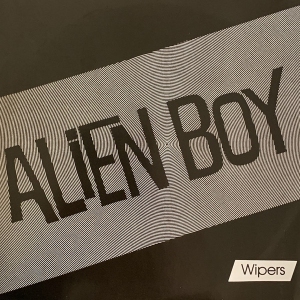
I don’t actually believe that Greg Sage existed in a vacuum, sealed off from the rest of punk and post-punk in Portland, OR, but when I listen to the Wipers’ music, it feels disconnected enough from the trends and techniques popular elsewhere at the time that I can at least entertain the thought. This EP includes “Alien Boy” from their debut Is This Real? along with three outtakes from those sessions. It feels very much like a bridge to their next release, 1982’s Youth of America. It invokes that record’s mood—its paranoid, lonely, nervous energy—but with the three non-album tracks fitting on the b-side, not Youth of America’s sense of scope. “Voices in the Rain” in particular has the sing-speak delivery that’s used a number of times on its follow-up.
|

